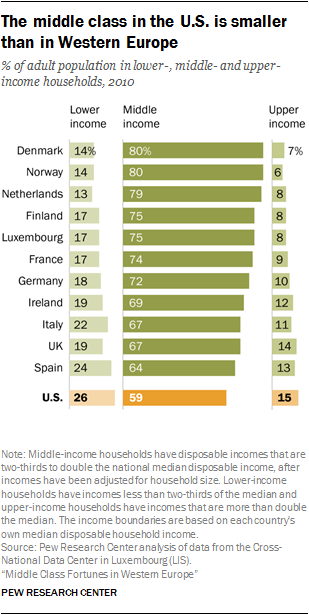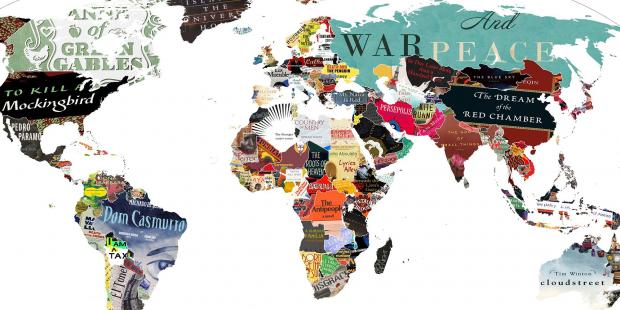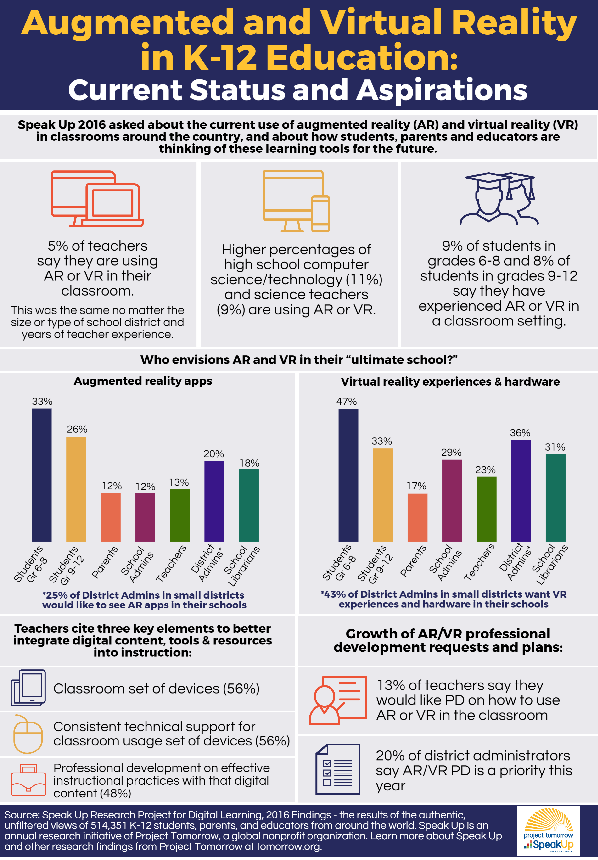Beautiful Audio Editor
https://beautifulaudioeditor.appspot.com/
++++++++++++++++++
more on audio editing and TwistedWave in this IMS blog
https://blog.stcloudstate.edu/ims?s=audio+editing
Digital Literacy for St. Cloud State University
https://beautifulaudioeditor.appspot.com/
++++++++++++++++++
more on audio editing and TwistedWave in this IMS blog
https://blog.stcloudstate.edu/ims?s=audio+editing
https://v4-alpha.getbootstrap.com/getting-started/download/
https://en.wikipedia.org/wiki/Bootstrap_(front-end_framework)
jQuery
From 1991 to 2010, the middle class expands in France, the Netherlands and the United Kingdom, but, as in the United States, shrinks in Germany, Italy and Spain
http://www.pewglobal.org/2017/04/24/middle-class-fortunes-in-western-europe/
The size and the well-being of the middle class are intertwined with some of the key economic challenges facing the developed world this century – income inequality is rising in many countries, economic growth is anemic, and economic mobility is lesser than in the past.
A smaller middle class or a relatively less well-off middle class often reflects a more unequal income distribution. In turn, increases in income inequality present an adverse climate for economic growth. A relative decline in the incomes of lower- and middle-income families may create a drag on overall consumption in the economy, lead to excessive borrowing by these families, or provide disincentives to invest in education.

A more vibrant middle class may also improve the economic outlook for future generations. In the U.S., for example, communities with larger middle classes offer a greater likelihood that children will experience upward mobility relative to their parents’ status in the income distribution. A similar relationship has also been found to exist across countries, whereby intergenerational mobility is greater in countries with less income inequality.
Many countries in Western Europe have significantly larger middle classes than the U.S.
The U.S. has larger lower- and upper-income tiers than the selected countries from Western Europe
Income inequality is related to the size of the middle class in a country
https://theculturetrip.com/europe/articles/this-literature-map-of-the-world-shows-you-every-countrys-favourite-book/
Following are the SCSU library locations:
USA – To kill a mockingbird – PS3562.E353 T6x
Russia – War and Peace – AC1 .G72 v.51
Canada – Anne of Green Gables – PR6025.O45 A5 1994x
United Kingdom – Pride and Prejudice – PR4034 .P7 1991b online at http://www.pemberley.com/janeinfo/pridprej.html
Spain – Shadow in the Wind – PQ6668.U49 S6613 2004
Iran – Persepolis – PN6747.S245 P4713
Ireland – Ulysses – PR6019.O9 U4 1998
Bulgaria – Under the Yoke – PG1037.V3 U5x
China – Dream of the Red Chamber – PL2998.T745 D7 1958cx
Congo – The antipeople – PQ3989.2.S64 A813 1988
What do you think should be your country’s favorite book?
Crowdfunded online publication from Jimmy Wales will pair paid journalists with army of volunteer contributors
Monday 24 April 2017 19.01 EDT Alex Hern Technology reporter
Jimmy Wales, the co-founder of Wikipedia, is launching a new online publication which will aim to fight fake news by pairing professional journalists with an army of volunteer community contributors.
Wikitribune plans to pay for the reporters by raising money from a crowdfunding campaign.
The ideas behind Wikitribune are similar to other experiments with sustainable community journalism.
Dutch news website De Correspondent, for instance, was launched in 2013 after a €1m (£850,000) crowdfunding campaign, with a goal of focusing on reporter-led in-depth coverage of a select few topics backed up by strong involvement from a community of financial backers.
In March, the site announced a push into the US market, funded by a $515,000 (£400,000) grant from a number of digital news charities.
++++++++++++++++
more on fake news in this IMS blog
https://blog.stcloudstate.edu/ims?s=fake+news
By Richard Chang 04/21/17
survey by the nonprofit organization Project Tomorrow.
annual Speak Up survey of more than 510,000 K–12 students, parents and educators
Middle school students seem to be the most excited about AR and VR in the school setting. Among students in grades 6 through 8, 33 percent said they would like to see augmented reality apps in their ultimate school, and 47 percent of those kids said they would like to see virtual reality experiences and hardware in their ultimate school.
teachers, principals and parents were more skeptical. Only 12 percent of parents and principals said they want to see AR apps in their ultimate school, while 13 percent of teachers said the same.

+++++++++++++++++
more on VR in this IMS blog
https://blog.stcloudstate.edu/ims?s=virtual+reality
more on AR in this IMS blog
https://blog.stcloudstate.edu/ims?s=augmented+reality
Rethinking Digital Literacy
facilitated by Paul Signorelli 4-week eCourse Beginning Monday, May 1, 2017
Learning outcomes
After participating in this course, you will be able to:
What is digital literacy? Do you know how you can foster digital literacy through formal and informal learning opportunities for your library staff and users?
Supporting digital literacy still remains an important part of library staff members’ work, but sometimes we struggle to agree on a simple, meaningful definition of the term. In this four-week eCourse, training/learning specialist Paul Signorelli will begin by exploring a variety of definitions, focusing on work by a few leading proponents of the need to foster digital literacy among people of all ages and backgrounds. He will explore a variety of digital-literacy resources – including case studies of how we creatively approach digital-literacy learning opportunities for library staff and users, and will explore a variety of digital tools that will help to encourage further understanding of this topic.
Now, who is ready to build their digital-literacy skills and help their users become digitally literate as well?
eCourse Outline
Part 1: Digital Literacy: Initial Definitions and Explorations
Part 2: Digital Literacy: Crap Detection and Other Skills and Tools
Part 3: Digital Literacy in Learning
Part 4: Fostering Digital Literacy: Creating Within a Digital Environment
+++++++++++++++
more on digital literacy in this IMS blog
https://blog.stcloudstate.edu/ims?s=digital+literacy
http://gcml.org/the-global-critical-media-literacy-educators-resource-guide/
Regular Pages: https://www.dropbox.com/s/jp5isqrn6ijv9lx/ACMEbookFINAL101215.pdf?dl=0
Spreads: https://www.dropbox.com/s/enya4iyyxahg8ik/ACMEbookFINAL101215SPREADS.pdf?dl=0
+++++++++++++
more on media literacy in this IMS blog
https://blog.stcloudstate.edu/ims?s=media+literacy
Eliza, 29, said she’d mostly abandoned using swipe apps for their intended purpose. “Tinder transitioned from being a thing where I actually wanted to meet people to being, ‘I’m bored, tell me I’m pretty,’” she said. “I don’t really meet people on it anymore.”
Talking to women in their 20s and 30s about the ways they avoid swipe burnout (or at least make swiping more pleasant), almost all of them said basically the same thing as Serena, 34: “I can only stand dating apps at this point because I delete them frequently. It feels less like a full-time job that way.” She was contemplating joining Match.com, one of the oldest and most traditional dating sites, in hopes that it might mean sifting through fewer profiles in search of decent, mature people looking to go on real dates.
+++++++++++++
more on Tinder in this IMS blog:
https://blog.stcloudstate.edu/ims?s=tinder
more on dating apps in this IMS blog
https://blog.stcloudstate.edu/ims?s=dating+apps
+++++++++++++++++++
https://blog.stcloudstate.edu/ims?s=digital+storytelling